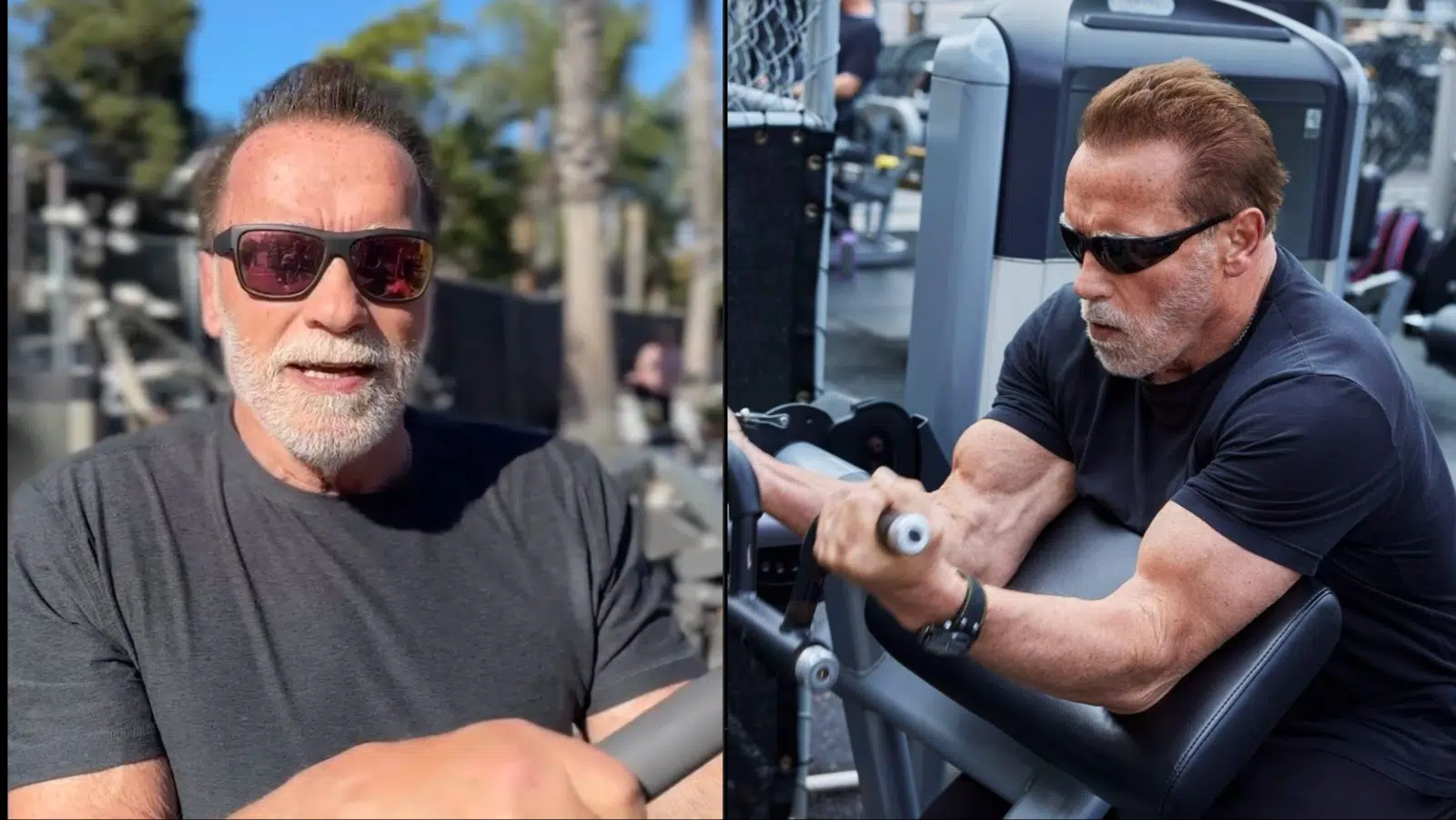As a seven-time Mr. Olympia champion, Arnold Schwarzenegger has a firm grasp on the best muscle-building methods. In a recent Arnold’s Pump Club newsletter, ‘The Austrian Oak’ revealed whether or not de-loading improves performance and muscle growth or if it’s overrated.
Arnold Schwarzenegger’s years of experience make him an excellent source of knowledge regarding fitness. From optimal workout routines to the best protein practices, he can help anyone reach their goals regardless of whether they’re a beginner or a seasoned Pro.
Arnold Schwarzenegger Gives Verdict on Whether or Not Deloads Help Build Muscle and Improve Performance
Schwarzenegger is committed to maintaining a longer and healthier lifestyle through a proper diet and staying active. However, remaining physically fit and eating healthy can get complicated, so Arnold Schwarzenegger’s newsletter removes the guesswork by weeding out the nonsense, providing his followers with science-based facts.
In a recent Arnold’s Pump Club newsletter, Schwarzenegger examined whether or not de-loading helps build muscle and improve performance or if it’s overhyped.
“Overrated Or Underrated: Deloads
Taking a few days off or enjoying a vacation is not a reason to stress or think you’ll lose your progress. But do you need to schedule a week off to maximize results?
Research suggests that deloads — planned time off designed to improve performance — do not make you stronger or help you build more muscle.”
Schwarzenegger revealed that for a while, many researchers believed that de-loading allowed the body time to ‘resensitize’ which allowed for muscle growth.
“For years, scientists have hypothesized that — on a molecular level — taking a break helps your body “resensitize” and grow. So researchers tested two groups: one trained for nine weeks without a break, while the other group took a week break in the middle of the program.”
However, after studying two groups, one with a de-loading schedule and one without, it was evident that taking a break didn’t help with muscle growth.
“At the end of the program, taking a 1-week deload did not benefit muscle growth, power, or endurance — and it appeared to reduce strength. And not taking a break appeared to have some psychological benefits.”
Even though the research doesn’t suggest that de-loading increases performance and muscle growth, Schwarzenegger explains that appropriate rest does help with mental and physical restoration.
“That’s not to say you must embrace a “no days off” mentality. The program had rest built into the workout design. And, if you’re a competitive athlete or peak for a competition, extra time off can help you bounce back mentally and physically.”
To summarize de-loading, Arnold Schwarzenegger encourages individuals to develop a proper training program that balances volume, intensity, and recovery rather than scheduling time off.
“The verdict: Deloads are an overrated way to improve workout performance. A well-designed workout will help you keep getting better by knowing how much rest you need, given the volume and intensity of the program. And, if you’re feeling worn down, take extra recovery time. But planning time off will not give you a competitive advantage.”
Arnold Schwarzenegger isn’t the only one to discuss the effects of de-loading. Physiologist and exercise scientist Dr. Mike Israetel took a different approach while speaking about the benefits of de-loading and revealed it was the best way to avoid overtraining fatigue.
“De-load every few months. Take an easy week of training or no training at all. When you get really tired, do that right now. If you think you are overdoing it and then coming back slice everything in half. Cut all of your volume in half.”
Ultimately, based on the evidence provided by Arnold Schwarzenegger, de-loading isn’t necessary for improving performance and muscle growth. Instead, you will have better results by listening to your body’s needs and basing your rest on the intensity and frequency of your training.
Tip: If you're signed in to Google, tap Follow.









